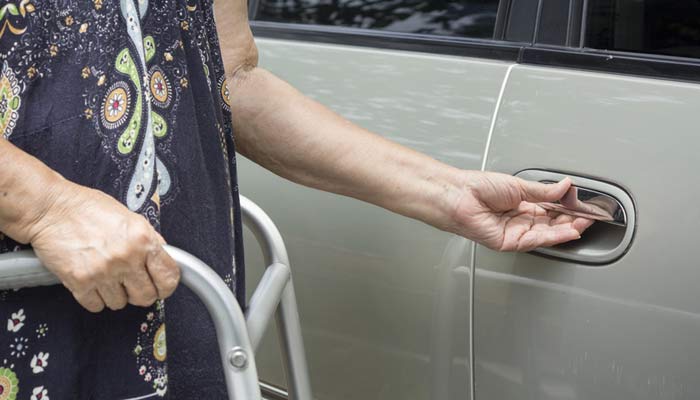Learn more at our e-library for family caregivers: www.CareConnectionsNWCT.com
Care Connections NWCT
Helpful tips for family caregivers
November/December 2017 Print
Money: know the details
 There are many aspects to financial stewardship. A primary goal is to ensure that you are prepared to manage things if a family member is suddenly sidelined. You don’t need to cover all these topics in one visit. (See our past article about having the conversation.) But it’s important to get started.
There are many aspects to financial stewardship. A primary goal is to ensure that you are prepared to manage things if a family member is suddenly sidelined. You don’t need to cover all these topics in one visit. (See our past article about having the conversation.) But it’s important to get started.
If this task sounds unpleasant, consider the prospect of being caught unprepared!
Legal empowerment. Has your family member signed a durable power of attorney (DPOA) document? This authorizes someone to manage their affairs if needed. Whoever is authorized as the DPOA for finances can access your loved one’s funds and accounts. The DPOA can also make transactions in their name.
Income and expenses
- What sources of income does your loved one have? Maybe Social Security, a work or military pension, investments, rental property, or an IRA?
- Is that income deposited directly into a bank account? If so, which one?
- What are their debts and regular expenses, such as a mortgage or rent, insurance, utilities, newspaper, cable, car loan, etc.?
- Are these expenses on auto-pay or do bills come to the house?
Location, location. In addition to this information, you also need to know where important documents are kept.
- Health insurance details: cards and customer service numbers
- Property insurance policies: house, car, or other property
- Bank records, including safe deposit box and key
- Tax returns
- Deed to home, mortgage documents, rental contracts, etc.
If files aren’t set up, now is the time to do so and put them in one location.
Other details. Get account numbers and the names and contact information for key professionals, such as a tax accountant, attorney, financial advisor, insurance broker. Ask about security codes and passwords to any online accounts.
Return to topA clear mind in the hospital
 It used to be considered normal and harmless for a hospital patient to be disoriented following surgery or while recovering from illness.
It used to be considered normal and harmless for a hospital patient to be disoriented following surgery or while recovering from illness.
Studies now show that delirium actually has serious consequences. In particular, it can make memory loss and dementia worse. It can last long after the hospitalization. And it seems to even increase the person’s chance of dying during the next year. Patients in intensive care are the most at risk.
Symptoms
- Confused thinking. Like dementia, delirium includes poor memory, difficulty speaking and reading, and garbled speech. Unlike dementia, delirium comes on within a matter of hours or days, not years.
- Reduced awareness of the environment. Your relative may have hallucinations or focus on unusual things. Alternatively, he or she may simply seem far away, withdrawn, and unresponsive.
- Strong emotions. Changes in mood—especially anxiety or depression—are common signs. Some people yell or strike out.
What you can do
If your loved one goes into the hospital, strive to make sure he or she
- has a familiar person present;
- has glasses and hearing aids. The ability to engage with the surroundings supports brain function;
- drinks plenty of fluid;
- is allowed to sleep with minimal interruptions;
- is on minimal medication. Drugs that slow the brain contribute to delirium;
- walks as soon and as often as possible. This keeps the brain active and helps the body process medications.
If you notice signs of delirium
Let the hospital staff know right away. They do not know your family member the way you do, so they may not recognize that things are amiss.
Car gadgets and tips
Providing transportation involves a lot more than having a car and time available. Getting your relative safely in and out of a vehicle can be a special challenge—for your loved one, but also for you. Back problems are the most common caregiving injury!
Here are some tips:
- Don’t rush. Give yourselves 15 minutes extra, in addition to driving time, to get somewhere. You’ll all end up in a better mood!
- Wear comfortable, nonslip shoes. Both of you!
- Help respectfully. Let your loved one do as much as possible, then ask, “Mom, how about I lift your leg to help you swing into the car?”
- Use helpful car features. Adjust the seats to maximize legroom when getting in and out.
- Park selectively. A flat parking lot is preferable to street parking. When you must park curbside, leave extra room beside the curb. Avoid slopes, drain covers, or other uneven surfaces.
- Sit selectively. Rather than sitting on the passenger side, people who have weakness or pain may have an easier time getting into the seat behind the driver. Experiment.
For extra help, seek out these proven aids:
- Swivel cushion. This device sits atop the car seat and swivels at its base, like a Lazy Susan with padding. It helps one pivot into the car. In a pinch, a plastic grocery bag on the seat can serve a similar function.
- Additional door handle. You can purchase a special handle that fastens to the door frame and provides an extra place to grab for support.
- Seat belt extension. Seat belts are often hard for an elder to pull down because they require reaching and twisting. An extension that hangs down to shoulder level facilitates grabbing and pulling the belt across the body.
